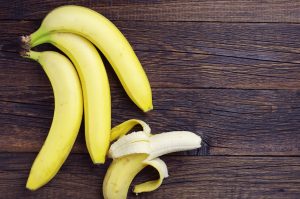Organics Unlimited launches GROW label in Japan

California-based Organics Unlimited last week launched its social responsibility-focused GROW label in Japan for its bananas, as the Asian country begins to adopt the consumer trend that has been on the rise in the U.S. 
GROW, which stands for Giving Resources and Opportunities to Workers, is a program launched by the banana-oriented grower-distributor in 2005. Nowadays around 95% of the company's bananas are sold under the label.
Organics Unlimited president Mayra Velazquez de León told Fresh Fruit Portal that while the company had been active in the Japanese banana market for the last decade, last week saw the first sales under the GROW label.
"A couple of months ago they had a couple of people come down, checking out exactly what GROW was doing," she said.
"They went out to the farms then came to San Diego to see the distribution side of things, and they also visited our International Communities Foundation (ICF)."
A portion of each purchased box of GROW-branded bananas is donated to a fund administered by the ICF. The entity ensures the money is used in a fair and transparent way to fund programs such as Project Amigo in Colima, Mexico.
Velazquez explained while organics had been popular in Japan for a while, until recently social responsibility had not been an important subject on many consumers' minds.
"It seems that Japan always follows what the U.S. does, and it took them a while on this one. They just started the social responsibility side of business, so it's only just starting to take off," she said.
Japan is the only country outside of the U.S. and Canada where Organics Unlimited sells bananas.
The fruit is grown on proprietary and third-party grower farms in Mexico and Ecuador, where there are about 450 hectares and 300 hectares of production respectively.
Most of production is based in Mexico in order to lower the operations' carbon footprint, with additional production in Ecuador to supply the year-round program during Mexico's winter months when volumes are reduced.
The company employs an engineer to manage the organic farm practices on the plantations belonging to third-party growers.
Velazquez explained GROW had come about as an alternative to joining the Fair Trade program.
"I thought, as we're already doing the same thing - we're socially responsible - why not do our own so we can really see what we're doing with our farms?" she said.
"I was brought up with that in mind. My dad was the first one to import organic bananas into the U.S. in 1974. So I kind of grew with it - it’s part of my life, and we’ve been closing the circle. We wanted to have a full sustainability program.
"We were emphasizing it in organic harvesting and cultivating systems. Little by little we modernized, but in an environmentally friendly way. We started doing our own compost onsite and then started looking into the carbon footprint, and last but not least was social responsibility with the GROW program."
She also believes GROW is the only sustainable program in the U.S. that does not sell its services.
When the program started off a little over a decade ago, only around two pallets a week were sold under the label. Nowadays however, weekly volumes have risen to around 20 loads of 30 pallets each.
Photo: www.shutterstock.com








































